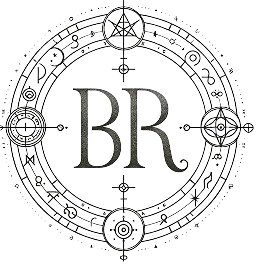
Numerology is an ancient system that draws meaning from different numbers, number combinations, letters, and symbols. It has been used for thousands of years by cultures all over the world as a way to gain insight into oneself and make predictions about the future. Though once shrouded in mystery, numerology has seen a resurgence in recent years as more people seek to understand themselves and the world around them on a deeper level.
A Brief History of Numerology
The origins of numerology can be traced back over 4,000 years ago to ancient China, Egypt, and Babylon. Many ancient philosophies such as Pythagoreanism, Kabbalah, and Gnosticism also incorporated numerological concepts. Over the centuries, numerology spread to other cultures and continued to develop as an esoteric field of study.
In the early 20th century, numerology experienced a revival in Western countries. Books and classes on the topic became widely available as people sought meaning in numbers like never before. Today, numerology continues to attract newcomers who want to harness the power of numbers for self-discovery and insight.

Core Principles of Numerology
At its core, numerology is based on the idea that numbers carry universal meanings that can be interpreted and applied to gain insight. Numerologists believe that by analyzing the numeric values in names, dates, addresses, and more, revealing information can be uncovered.
There are several key principles that form the basis of numerology:
- Vibration: Every number has its own unique vibration and energy. Vibrations can be positive, negative, or neutral.
- Reduction: Multi-digit numbers are reduced to single digits (1-9) as these are considered root numbers. This is done by adding all the digits together to get a single sum.
- Meaning: Each number from 1-9 has meaning attached to it. Numerology provides interpretation of numbers to uncover deeper significance.
- Calculation: Letters and names are converted into numeric values that can then be reduced and analyzed.
- Patterns: By identifying number patterns, insight can be gained about personalities, relationships, events and more.
By learning and applying these core principles, anyone can start using numerology for self-reflection or to understand situations playing out in the external world.
Numerology Calculations
There are a few key calculations that numerologists use to convert letters and names into numbers. Here are some of the main ones:
- Pythagorean: This system assigns numbers 1-9 to the letters of the alphabet. A=1, B=2, C=3 and so on. The numbers for each letter are added together.
- Chaldean: Similar to Pythagorean except the numbers assigned to letters are different. It is a more ancient system.
- Name Number: The most commonly used in numerology. The numeric values of the letters in a name are added together to get a single digit sum.
- Birthday Number: The date of birth is reduced to a single digit that represents an individual’s life path.
- Destiny Number: First and last names are combined and reduced to find one’s destiny or purpose.
- Personality Number: Vowels in a name are given numeric values and added together while consonants are omitted.
Numerologists use these and other calculations to unlock the meaning behind names, birthdates, addresses, and more. With some practice, beginners can start applying them too.

How Numerology is Used
There are many ways numerology can provide insight into lives and situations. Here are some of the main applications:
- Understand personality & characteristics: By analyzing name and birthday numbers, strengths, weaknesses, motivations and other traits can be identified.
- Life path guidance: Numerology can point toward advantageous careers, relationships, moves, and other life directions by revealing life path and destiny numbers.
- Forecasting & predictions: Certain numbers are seen as luckier than others. Numerology can predict the best times to make changes and important moves.
- Relationship analysis: The interaction between two people’s numbers can assess compatibility and areas where partners complement one another.
- Goal setting: Lucky number combinations can be used to support the achievement of goals. Certain numbers are more associated with abundance and success than others.
The insightful information revealed through numerology calculations allows for better self-understanding and more informed decision making. It provides a new perspective on life’s potential.
Getting Started with Numerology
For beginners interested in exploring numerology, start by learning the basic principles and calculations. There are many online tutorials and numerology books that can build foundational knowledge.
As you become familiar with converting letters and numbers, look up the meanings of your core numbers including life path, destiny, personality and soul urge. See how they align with your view of yourself.
Create numerology charts for friends and family to get comfortable with calculations. Make predictions about relationships, moves, jobs changes and other transitions to test accuracy over time.
Use numerology to identify your lucky numbers and use them to support your aspirations and dreams. Meditate on your numbers to connect with their energies on a deeper level.
The more you work with numerology, the easier it becomes to integrate it into your life. Avoid becoming overly reliant on its predictions and rather use it as spiritual guidance toward your best self. Allow your intuition to lead the way.
The mysteries of numbers have been used for millennia to uncover life’s hidden meanings. As a beginner, approach numerology with an open mind and heart. With practice, it can become a valuable tool for unlocking your potential and discovering your destiny.


